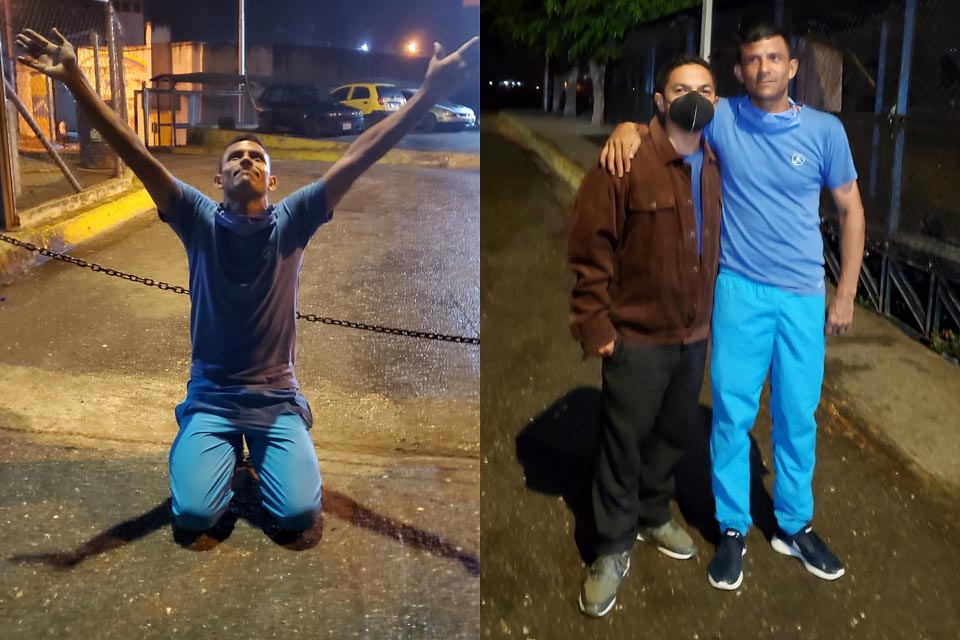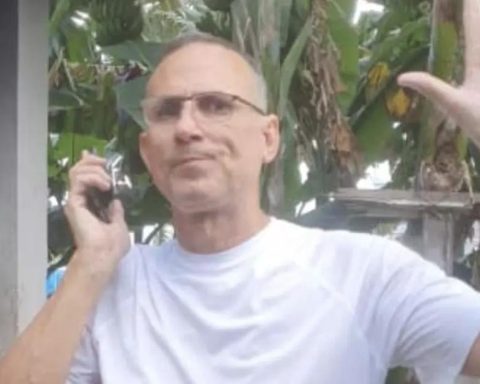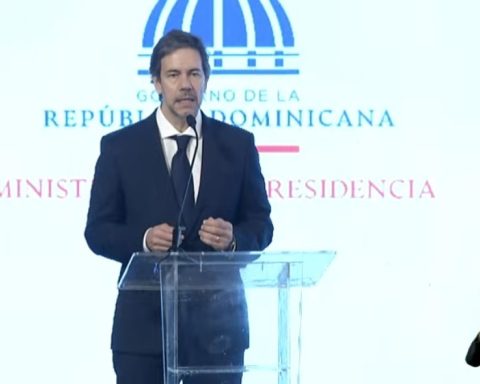The 2022 National Census closed and there will be a week to retrieve pending housing data
WATCH VIDEO
More of 23.8 million people completed the digital form of the 2022 National Censuswhich, in principle, implies that more than half of the country’s inhabitants chose this modality to carry out the census process, reported this Wednesday the director of the Indec, Marco Lavagna.
“We did not know how the digital census was going to be received, but it exceeded all our expectations and that will allow the field operation to be much faster“, added the official during a morning press conference.
Lavagna specified that 23,813,773 people completed the digital formwhich involves 8,615,318 households and represents, according to estimates, more than 50 percent of the population.
“In the last 72 hours, 2,023,869 homes completed the digital census,” added Lavagna.
The digital census modality was launched on March 16 and ended this Wednesday at 8, before the traditional territorial survey began.
“It exceeded all the expectations we had” and allowed “the field operation to be done much faster,” the Indec head abounded in another of the press conferences he offered during the day at the headquarters of the national statistical agency.
In an opinion column published on Tuesday in Télam, the official expressed that “this census in particular has a special meaning, because we are witnessing the first digital survey in history: the outbreak of the pandemic forced us to postpone the 2020 operation , but it also gave us the opportunity to accelerate the paths of innovation from the development of the digital Census”.
Among the modality’s advantages, he highlighted “the reduction of operating costs and optimization of work time of the census structure” and considering it a success “of society”, he indicated that “the figures are so impressive that we dare to affirm that this 2022 Census is marking a turning point in the history of the censuses of the Argentine Republic”.
The day in the provinces
At the end of the operations, officials from different provinces consulted by Télam explained that tonight they will finish compiling the data to send it this Thursday by mail to the Indec and that, in the case of the houses that were not registered, there will be “a week of recovery” with new face-to-face tours of census takers for which the inhabitants must communicate with each provincial headquarters.

Among the salient facts of the operation of the National Census in the provinces, the participation as census taker of the governor of Missions, Oscar Herrera Ahuadwho joined the face-to-face operation as a volunteer, with his bib and a bag with forms, to tour the streets of Posadas.
In Jujuytwo census takers and a Radio chief walked more than 20 hours to census five families who live in Cerro Negro, in the Jujuy department of San Antonio, and in the middle of the prevailing cold, at the top of the area, they ran into an anticipated snowfall near from the border with the neighboring province of Salta.
The group assigned to the rural census had left on Saturday from the town of San Antonio and returned this afternoon tired after completing the long walk through winding and rugged trails in the valleys of southern Jujuy, carrying in their backpacks the answers they were looking for. on their census forms.
In the province of Buenos Aires, the Minister of Finance, Paul Lopezassured Télam that “the fact of having an online census made things much easier and speeds up the procedure.”
“The 50% of the houses did the digital census, that makes the visits of the census takers advance very quickly,” added the Buenos Aires official, who has 8,054,387 addresses in its 135 municipalities.
The Governor of San Juan, Sergio Unachighlighted that participation in the Digital Census “reached 52.6 percent, that is, above the national average.”
In The Rioja33% of homes opted for the Digital Census, according to the Chief of Staff of the province, Juan Luna.

In Cordovathe general director of Statistics and Census of the province, Daniel Ortega, told Télam that “45.5% of the homes in the province and 49% in the capital have completed the data with the digital census” and highlighted that this data “surprised” because they expected to reach 25%, for which he maintained that the result “shows us the efficiency” of that system and that “it makes us rethink the census of the future.”
The director of the Provincial Institute of Statistics and Censuses (IPEC) of Santa Fe, Gabriel Frontonshighlighted in turn that “approximately 1.8 million people had completed the digital census, which involves some 700,000 households.”
In saint LouisNéstor Arellano, provincial director of Statistics and Provincial Censuses, said that 45% of households had completed the questionnaire in digital mode.
For his part, Facundo Biffi, director of Statistics and Economic Information (DEIE) of mendozahighlighted that the province “completed 43.8% of the digital housing census, becoming the first district in the country to complete this modality.”
In his turn, Raúl García, Director of Statistics of Tucumanhighlighted that “until last night, 44.41% of households completed the online questionnaire in the province.”

The digital census questionnaire, which could be completed until 8 a.m. this Wednesday, presented 61 questions: 24 related to the characteristics of dwellings and households, and 37 on the structure of the population.
The inhabitants who carried out the digital census received a code in the proof of completion, which had to be presented this Wednesday to the census takers, with which the interaction was reduced to 40 seconds, according to the Indec, compared to 10 to 20 minutes that it was estimated to be used to complete the face-to-face questionnaire.
What happens to people who were not visited by census takers
On the other hand, Lavagna announced that there will be a week to recover data from the homes that were pending. “We will attend to the houses that were left uncensused,” added the official when asked about the houses that could not be registered during the 2022 Census.
“We are going to use different mechanisms to verify the houses that have not been registered. So far we have had some calls and some emails, it is a small portion and we are going to attend to it,” he explained.
Those who did not receive the visit of the census taker during the day of May 18 and did not complete the digital Census They must send an email [email protected] or call 0800 345 2022 with the following complete information: Subject: I was not registered; Name and surname; Province; Party/Department; Location; Street; Floor and apartment number (if it is a horizontal property); Email and contact telephone number (include area code, and if it is a landline or cell phone), the Indec reported tonight.
According to the planning agreed upon in the National Statistical System, “from May 19 to 22 next, the recovery stage will be carried out so that the entire population is correctly accounted for,” they added from INDEC.


















